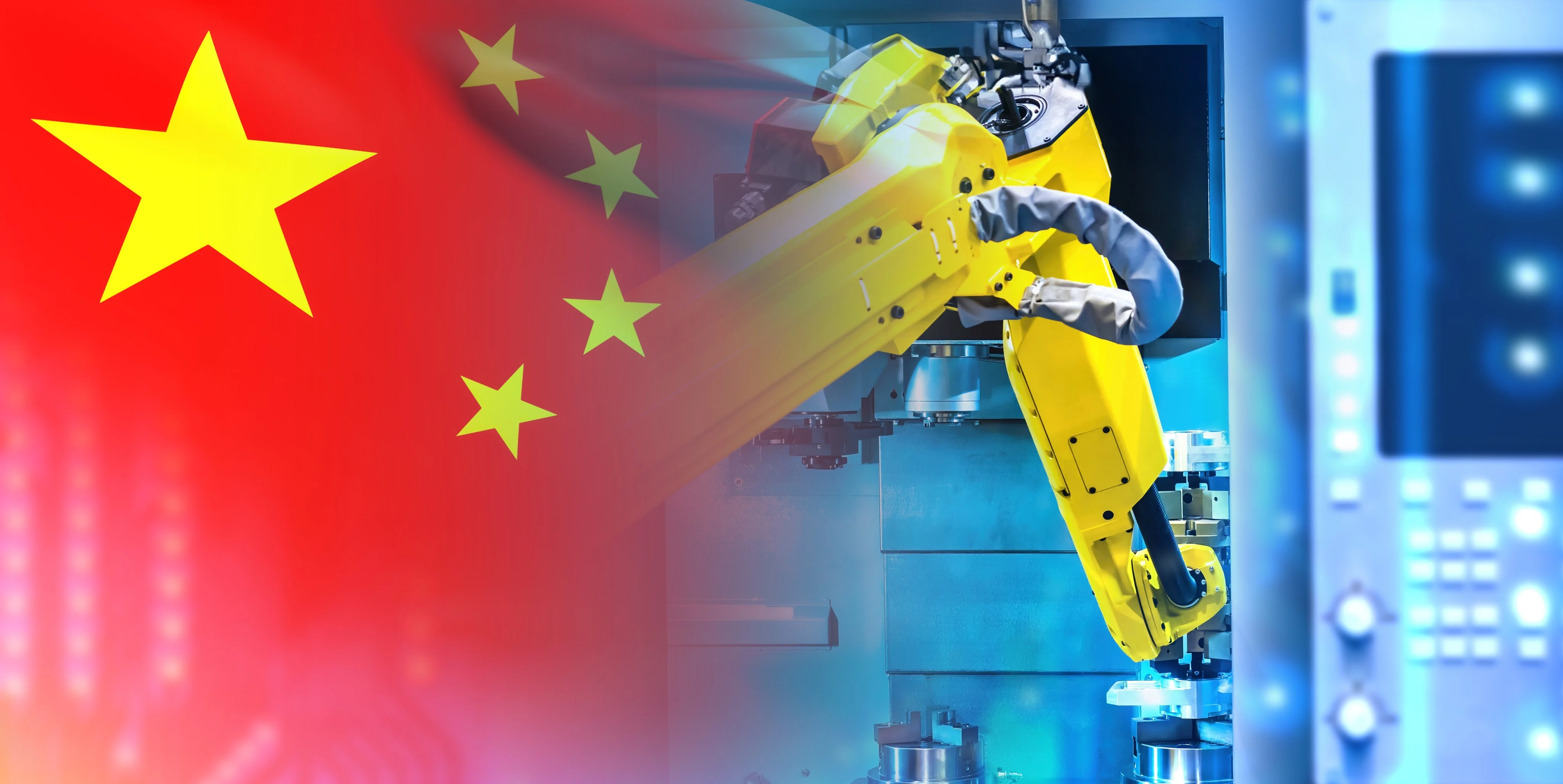Copyright scmp

Pang Zhibo, a leading expert on industrial chips and robots with high-end manufacturing giant ABB in Sweden, has returned to China and joined Peking University as a fully tenured professor. As ABB’s senior principal scientist, Pang was second only to the company’s chief technology officer – who personally appointed him – and oversaw more than 800 developers and 80 technical products globally across all business areas. The Swiss-Swedish multinational, best known for robotics, motors, energy and automation, is one of the largest industrial engineering companies in the world, with Pang sharing responsibility for ABB’s global distribution R&D strategy. Pang’s work spanned core domains such as robotic embodiment intelligence, industrial large models, next-generation controllers, industrial cyber-physical security, networked control, cloud/fog computing and 5G/6G/broadband satellite communications. These technologies are applied in ABB’s key sectors, including smart manufacturing, robotics, industrial drives, smart buildings and automation. Pang holds adjunct professorial positions at Sweden’s KTH Royal Institute of Technology and the University of Sydney in Australia, where his research has focused on embodied intelligence, cloud-edge automation and secure communication for 6G. His new appointment began this month, according to an announcement from Peking University’s rapidly growing School of Advanced Manufacturing and Robotics, established in 2016 amid China’s push for scientific innovation. Pang earned a bachelor’s degree in electronic engineering from Zhejiang University in 2002. He chose to gain industry experience first, working as a chip design engineer at Hangzhou Guoxin Technology Co., Ltd, rising to project manager and department manager. There, he led an R&D team of more than 80 people, focusing on front-end chip design and system solutions. It was one of the few teams in China at the time capable of independently completing large-scale system-on-a-chip (SoC) designs. In 2009, Pang began an MBA in innovation and growth at the University of Turku in Finland. The following year, he started a PhD in electronic and computer systems at Sweden’s KTH and obtained his MBA and PhD in 2012 and 2013, respectively. After completing his PhD, Pang joined the ABB Corporate Research Centre in Vasteras, rising from scientist to senior and principal positions, culminating in his appointment as a top senior principal scientist by ABB’s CTO, Bazmi Husain, in October 2019. Since 2021, Pang has held several professorships at KTH and other international universities. His research is interdisciplinary, spanning intelligent robotics and autonomous systems. Pang’s work includes physical information neural networks, multimodal embodied intelligence models and high-performance cloud-based controllers. His expertise also covers cyber-physical security for autonomous systems, integrated networked computing and control design, as well as hardware for highly dynamic, agile robots. His proposal of a new paradigm for industrial control system design called Cloud-Fog Automation (CFA) has garnered attention from industry and academia. The CFA framework is a digital industrial automation reference architecture designed to achieve autonomous industrial cyber-physical systems through the integrated co-design of communication, computation and control. Pang received the ABB Group’s Corporate Research Inventor of the Year award in 2016, 2018 and 2021 – a particularly notable recognition as the annual prize is typically open to ABB’s global workforce of more than 100,000 researchers. He also secured and led more than 10 research projects funded by the European Union, Sweden and ABB Group, with total funding exceeding €9 million (US$10.4 million). “I am an innovator and research leader passionate about industrial digital transformation, with over 20 years of experience across universities, large corporations and start-ups, spanning the entire innovation cycle,” Pang said in his résumé at the end of 2024. China’s national innovation-driven development strategy has explicitly listed intelligent robots as a “disruptive technology leading industrial transformation”. Last year, the School of Advanced Manufacturing and Robotics was elevated from its previous position as a department within the College of Engineering – marking it as a critical platform for Peking University’s engineering research and innovation. The move aligns with China’s strategic priorities. The recently announced 15th five-year plan emphasises decisive breakthroughs in key core technologies, including integrated circuits, industrial machinery, advanced materials and biomanufacturing. Sweden, which Pang leaves behind, ranks second in the 2025 Global Innovation Index published by the World Intellectual Property Organization. China has just entered the top 10 for the first time. Passionate about science? Dive deeper with the Dark Matters newsletter, a weekly in-depth analysis on China’s rise in science, technology and military that goes beneath the surface. Sign up for free now.



